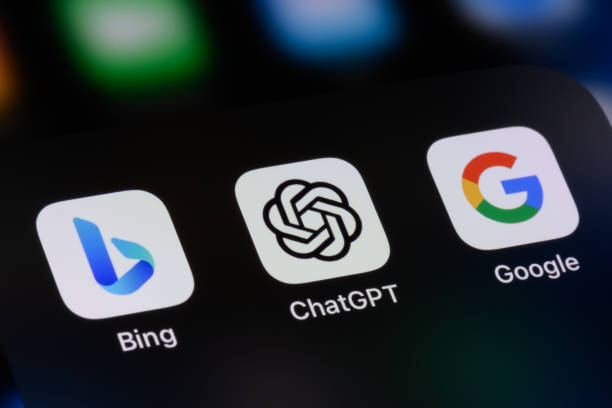In the stillness of a late-night search, a client seeking addiction recovery finds your teletherapy platform, a digital haven offering hope through a secure video call. For mental health counselors, teletherapy platforms for mental health counselors are bridges to clients who might otherwise stay silent, especially those battling addiction where stigma looms large. In 2025, as virtual care becomes a cornerstone of mental health services, these platforms empower counselors to connect with clients anywhere, offering privacy and flexibility. From encrypted video sessions to integrated scheduling, teletherapy platforms streamline operations and expand reach, all while ensuring compliance with privacy laws. This narrative explores how teletherapy platforms for mental health counselors transform practices, weaving strategies to select and use these tools to grow your impact, particularly in addiction counseling. Begin your teletherapy journey at Mental Health IT Solutions.
Table of Contents
- Why Teletherapy Platforms Are Essential
- Choosing the Right Teletherapy Platform
- Ensuring Secure Video Conferencing
- Streamlining Scheduling and Billing
- Engaging Clients with Interactive Features
- Maintaining HIPAA and Part 2 Compliance
- Optimizing for Client Accessibility
- Promoting Your Teletherapy Services
- Integrating with Digital Marketing
- Measuring Teletherapy Success
- Frequently Asked Questions (FAQs)
- Conclusion
Why Teletherapy Platforms Are Essential
Imagine a client in a rural area, hesitant to seek addiction counseling in person, discovering your virtual practice through a teletherapy platform. Teletherapy platforms for mental health counselors break down barriers, offering secure, private sessions that reach clients wherever they are. In 2025, with telehealth usage soaring, these platforms expand access, reduce no-shows, and enhance client comfort, particularly for substance use disorder (SUD) treatment. They save time on logistics, letting counselors focus on therapy, as discussed in SEO for Mental Health Therapists.
Choosing the Right Teletherapy Platform
Selecting a teletherapy platform is like choosing the right key to unlock client connection. The table below outlines core features to guide your choice, tailored for addiction counseling.
| Feature | Purpose | Client Impact |
|---|---|---|
| Encrypted Video | Ensures secure, private sessions. | Builds trust for sensitive disclosures. |
| Scheduling Tools | Automates bookings and reminders. | Simplifies access, reduces no-shows. |
| Client Portal | Offers secure access to resources. | Enhances engagement between sessions. |
| Group Session Support | Enables virtual support groups. | Fosters community for addiction clients. |
Look for platforms with intuitive interfaces and Business Associate Agreements (BAAs), as highlighted in Why Therapists Need a Blog.
Ensuring Secure Video Conferencing
Security is the heartbeat of teletherapy platforms for mental health counselors, especially for addiction clients protected by 42 CFR Part 2. Platforms must offer 256-bit AES encryption and end-to-end secure video to safeguard sessions. Features like waiting rooms and session recording (with consent) enhance control, while audit logs track access to Protected Health Information (PHI). In 2025, secure video builds client trust, encouraging engagement, as noted in Therapist Marketing Guide.
Streamlining Scheduling and Billing
A seamless client experience begins with efficient operations. Teletherapy platforms for mental health counselors integrate scheduling tools that let clients book sessions via a secure portal, sending encrypted reminders to curb missed appointments. Billing features process payments with HIPAA-compliant encryption, reducing administrative burden. In 2025, automation frees counselors to focus on addiction therapy, attracting clients with convenience, as explored in Lead Generation for LMFTs.
Engaging Clients with Interactive Features
Teletherapy platforms go beyond video calls, offering tools to deepen client connection. Secure chat for between-session support, virtual whiteboards for coping exercises, or mood trackers for addiction recovery keep clients engaged. In 2025, these features resonate with tech-savvy clients, fostering accountability in SUD treatment. Interactive platforms create a sense of community, encouraging retention, as discussed in Practice Growth for Therapists.
Maintaining HIPAA and Part 2 Compliance
Compliance is non-negotiable for teletherapy platforms for mental health counselors, particularly in addiction counseling. Platforms must provide BAAs, encrypt PHI (e.g., session notes, sobriety plans), and maintain audit logs. Regular security training and risk assessments prevent breaches, ensuring adherence to HIPAA and 42 CFR Part 2. In 2025, compliant platforms signal professionalism, reassuring clients and boosting inquiries, as emphasized in HIPAA Compliance for Therapists.
Optimizing for Client Accessibility
Accessibility defines the reach of teletherapy platforms for mental health counselors. Platforms should support multiple devices (phones, laptops) and offer low-bandwidth options for rural clients. Features like multilingual interfaces or screen reader compatibility ensure inclusivity, vital for diverse addiction clients. In 2025, accessible platforms attract a broader audience, reducing barriers to care, as noted in EHR Evolution in Mental Health.
Promoting Your Teletherapy Services
A robust platform needs visibility to connect with clients. Promote your teletherapy platforms for mental health counselors through your website, social media posts about virtual addiction support, or Google Ads targeting “teletherapy for addiction.” In 2025, sharing client testimonials (anonymized, with consent) on Instagram builds trust, driving traffic to your platform’s booking portal. Strategic promotion amplifies reach, as discussed in Mental Health UX/UI Design.
Integrating with Digital Marketing
Digital marketing supercharges teletherapy platforms for mental health counselors, embedding them into broader outreach. Optimize your website for keywords like “virtual addiction counseling” to drive platform sign-ups. Email campaigns with recovery tips link to your teletherapy portal, while analytics track click-through rates. In 2025, integrated marketing ensures your platform reaches addiction clients, as explored in Teletherapy Platform Development.
Measuring Teletherapy Success
Data reveals the impact of teletherapy platforms for mental health counselors. HIPAA-compliant analytics track session attendance, client retention, and platform usage, setting goals like a 15% increase in bookings quarterly. Secure surveys gather feedback on user experience, refining features like chat or group sessions. In 2025, performance insights optimize your platform, attracting more addiction clients, as highlighted in Lead Generation for Mental Health Professionals.
Frequently Asked Questions (FAQs)
- What are teletherapy platforms for mental health counselors?
Secure digital tools offering video conferencing, scheduling, and client engagement for virtual therapy. - Why use teletherapy for addiction counseling?
It expands access, ensures privacy, and reduces stigma for SUD clients. - What features should a teletherapy platform have?
Encrypted video, scheduling, client portals, and group session support. - How do I ensure HIPAA compliance with teletherapy?
Choose platforms with BAAs, encryption, and audit logs, and conduct regular training. - How can I measure teletherapy platform success?
Track attendance, retention, and inquiries with HIPAA-compliant analytics.
Conclusion
Teletherapy platforms for mental health counselors are digital lifelines, connecting addiction clients with the care they need. From secure video to interactive tools, this narrative has shown how these platforms expand reach, streamline operations, and build trust in 2025. By choosing a compliant, accessible platform and promoting it strategically, counselors can grow their practice and transform lives. Start empowering your clients with Mental Health IT Solutions.







